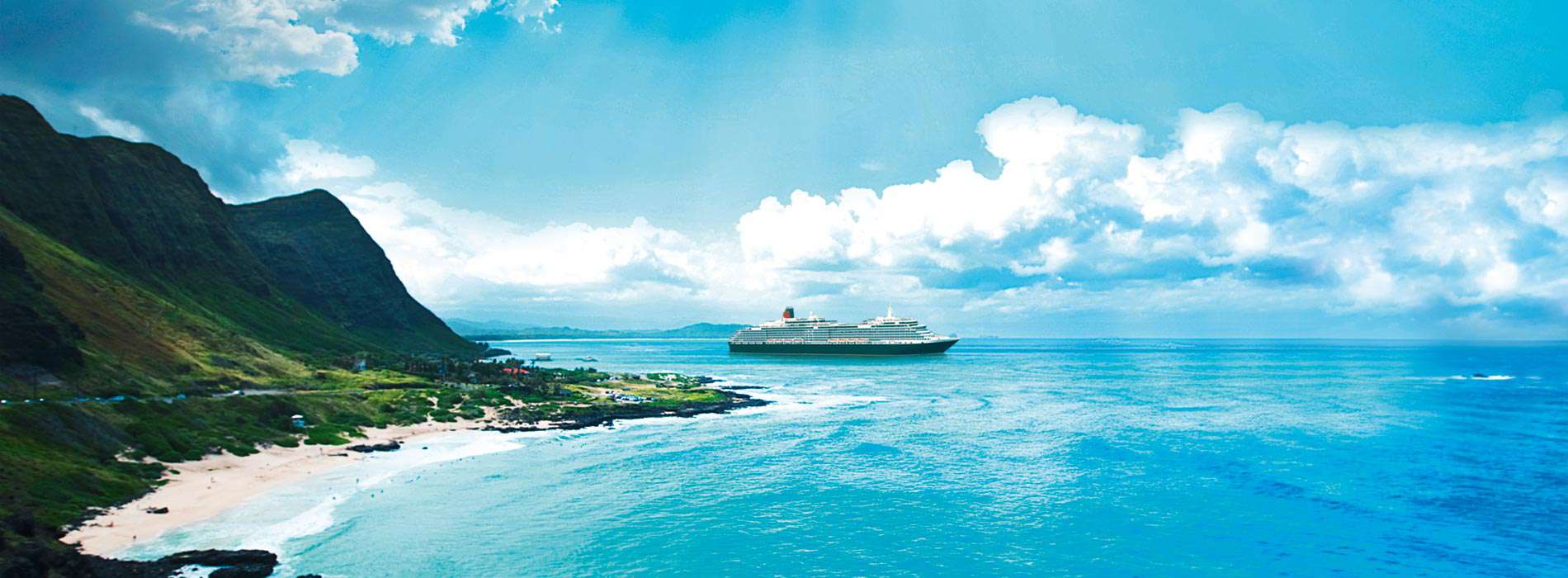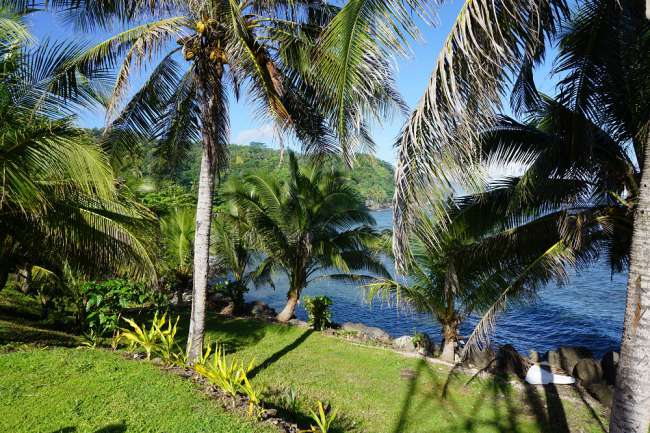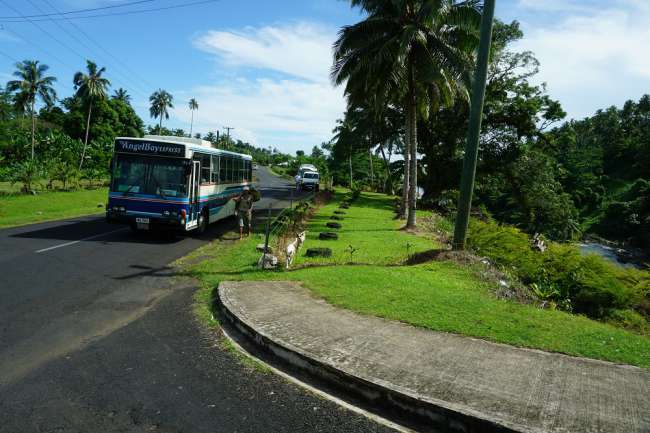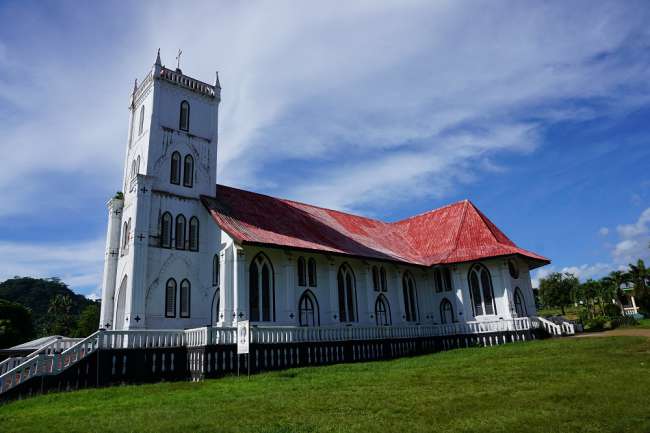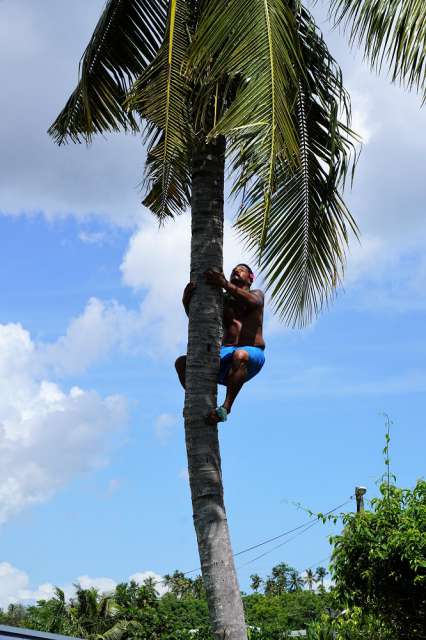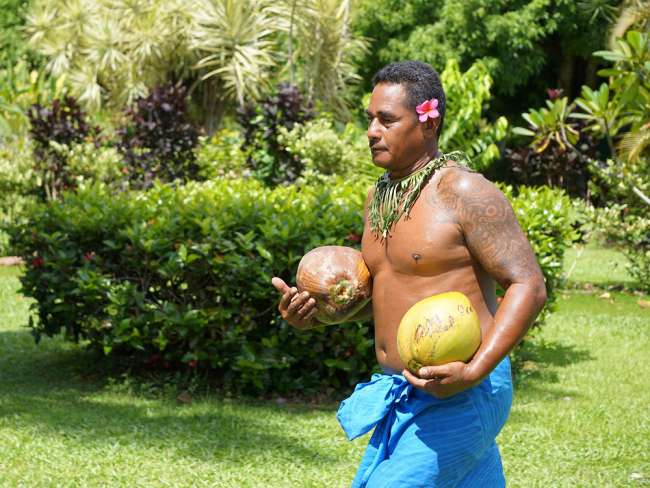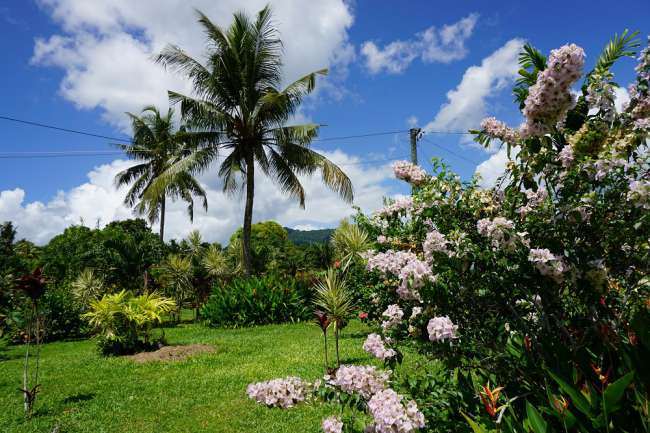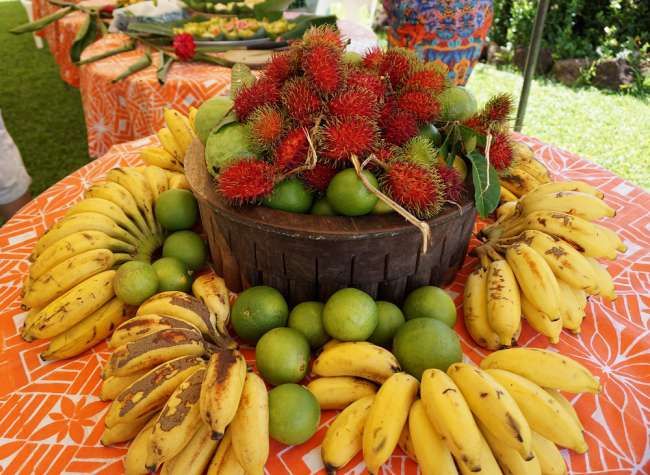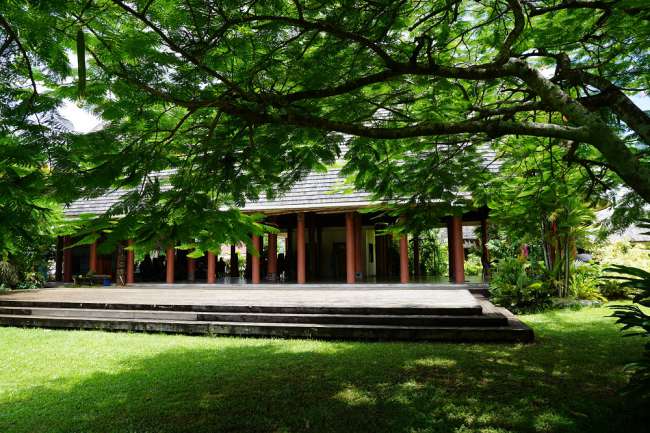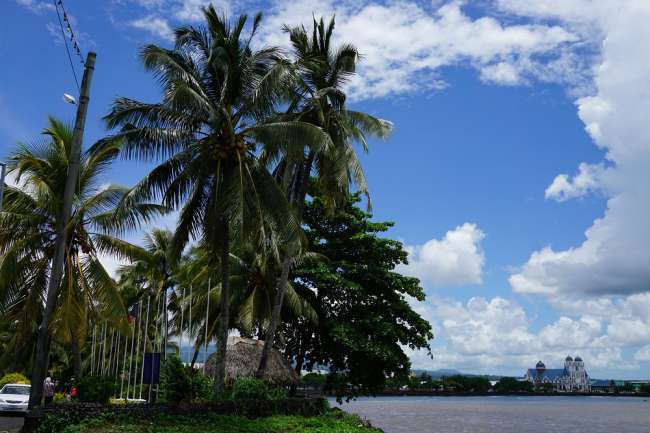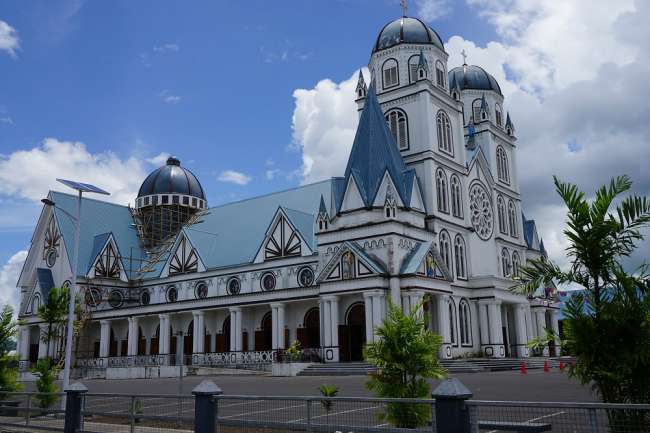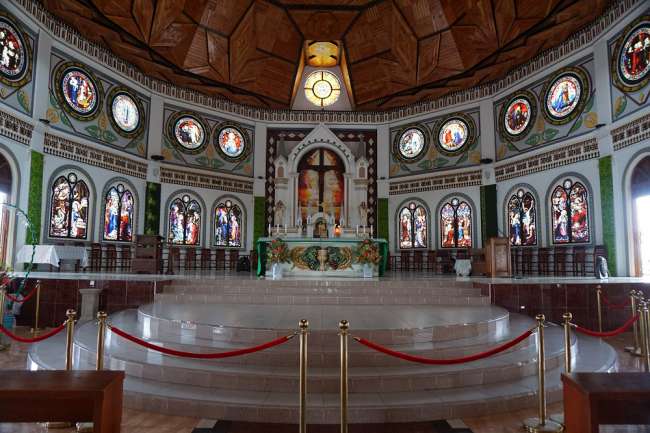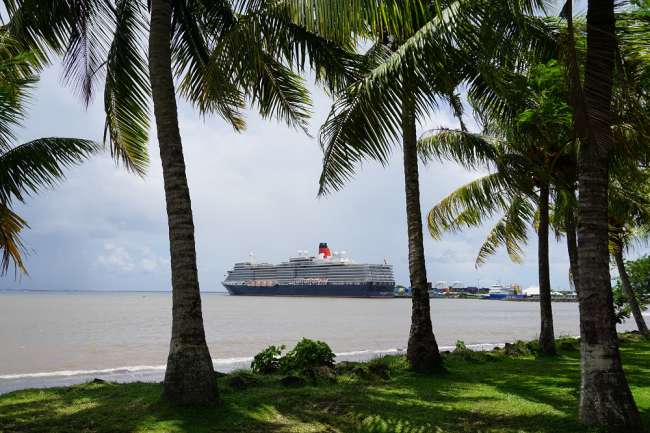With Angelboy to Paradise
Published: 17.02.2017
Subscribe to Newsletter
With this title I hope to have made you curious and certainly triggered first associations. But before you speculate too much, let's quickly get to the facts: The buses have names in Samoa and my very, very local bus was actually called "Angelboy Express" and it actually took me to paradise or at least very close to paradise, because Samoa is really stunningly beautiful. Gorgeous tropical vegetation, palm trees down to the shore, lagoons and green everywhere you look.
My excursion took me along the small villages on the coast and ended in a beautifully landscaped tropical garden, where you could rest under palm trees from the intense heat and 80% humidity and enjoy exotic fruits. The drive there already made my adrenaline levels rise, because Angelboy's brakes screeched frighteningly loud on the often steep terrain and he rattled over bumps and stones, of course, driving on the left side of the road, and would never have passed the vehicle inspection in our country, but here they have great trust in God. I could have also chosen to ride the bus "One Way Jesus". The religious reference is already a very typical characteristic of Samoa: The locals here are very Christian and generally very religiously minded. The missionaries of the 19th century did a great job here. This also included the Germans, because Western Samoa was German until World War I. Since 1962, Western Samoa has been independent with the capital Apia, where the QE docked in the port. The Christian influence has remained and determines everyday life. Just in Apia alone, I found 18 churches on the city map, and when Angelboy drove us through the country, there was definitely a church every 800 meters. I have never seen so many churches in one place. There are all denominations, from Catholic, Protestant, Anglican churches to Methodists and Mormons, who also have many members here.
Nevertheless, it is astonishing that the population has retained their old culture almost 100% and above all, control over public life. Everyone here belongs to a family clan and this clan, called "Matai", determines life. There is no justice system in Samoa, for example, and only very few police officers. Everything is regulated by the Matais and with strict leadership. During my tour of the country, I saw a kind of large pavilion as a meeting place for clan gatherings between 3-4 houses. Everyone in the clan has their role and function, which is clearly defined, and the focus is on the collective "we", not on "I" and self-fulfillment. Similarly, the upbringing is very strict. When I asked my tour guide if marriages are also arranged within the clan, he denied it and said that they marry "with love". The children are raised by both parents, but at the age of three, they also have another close attachment figure besides their parents. Everything is based on respect for others, especially the elderly. I found it interesting to see large bowls in front of the meeting places that serve as gongs, because in the evening, when everyone comes home from work, the gong is struck three times at intervals to pray and pause for about 15 minutes, only then can everyone do what they want.
The people seemed very friendly and cheerful, keeping their houses and properties very tidy, no rubbish, no dirt. The rubbish bin is elevated 1.50 meters so that no animals can rummage through the rubbish. So everything is taken care of. There are also happy dark brown pigs running around freely. At least until they end up in the cooking pot. Here, pork and chicken are predominantly eaten, which is why the Samoans are not exactly slim.
Landscape-wise, Samoa is a feast for the eyes because it is not built up, there are no big hotels, but rather only B&Bs, which is why relatively few tourists stay on the island for a long time.
The only downside is the very challenging climate, which not only I but almost everyone felt. In the afternoon, I went on a walking tour to the city along the bay and came back drenched in sweat. It is currently rainy season, which means heavy showers are part of the daily routine. In Apia, very dark clouds appeared in the afternoon, but the weather held up and I didn't get wet. I could also use my umbrella as a sunshade, like everyone else here in Samoa. However, it rained all morning today, at 26 degrees above the sea. But on a sea day and after yesterday's exhausting day, nobody was upset about it.
This morning, our captain arranged the route to Tonga so that he sailed directly back to the International Date Line, and thus had two different days on the starboard and port side. He is always up for a little fun. A few days ago, he gave a very interesting lecture about the ship, navigation, and some technical data, which I really liked. At the beginning of his lecture, he pulled up his white pants from his captain's uniform and presented his two socks in red and green. He also spends a lot of time on the ship and on deck, and is always ready for a short conversation or happy to answer questions.
In today's daily lunch announcement, he informed us that the Hamburg passengers have now traveled 23,520 km. I can hardly imagine that myself, but we are truly at the other end of the world.
From here, I send you warm greetings. In the onboard newspaper, I always read about the German weather, which is slowly improving for you.
So, here are some early spring greetings until the next message from the Kingdom of Tonga.
Eva
Subscribe to Newsletter
Answer
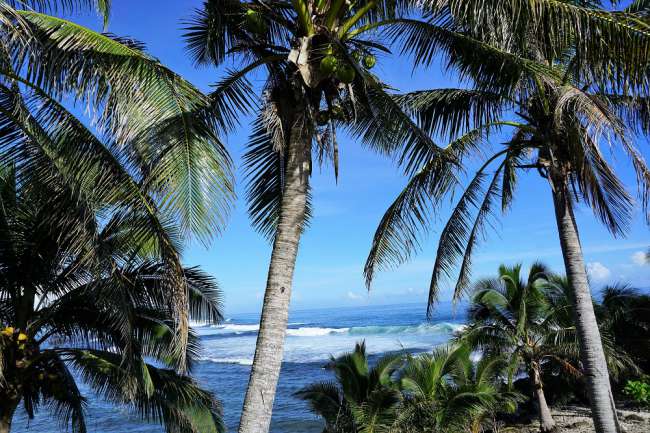
Travel reports Samoa
